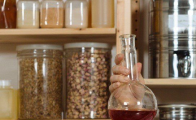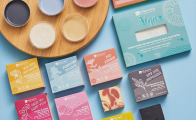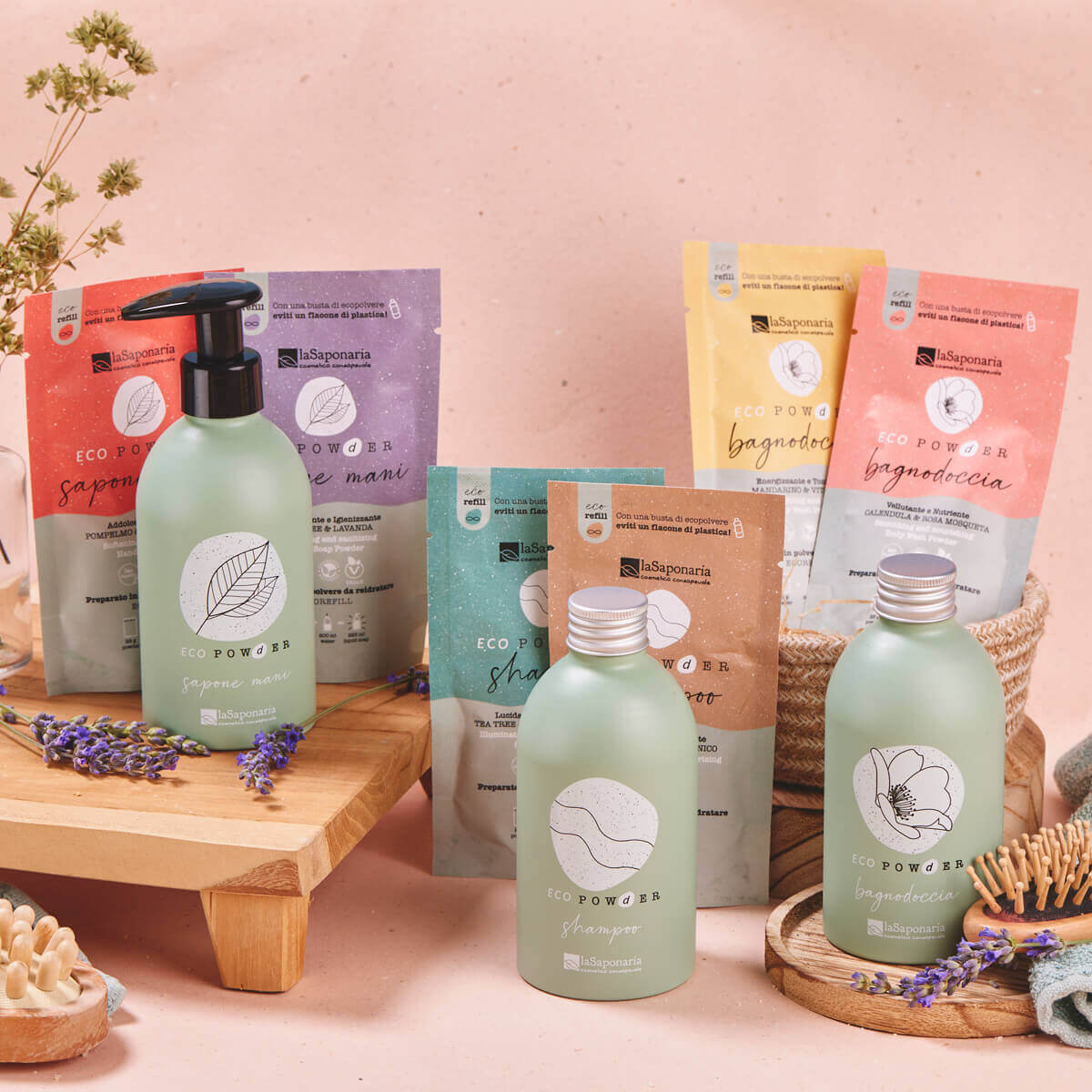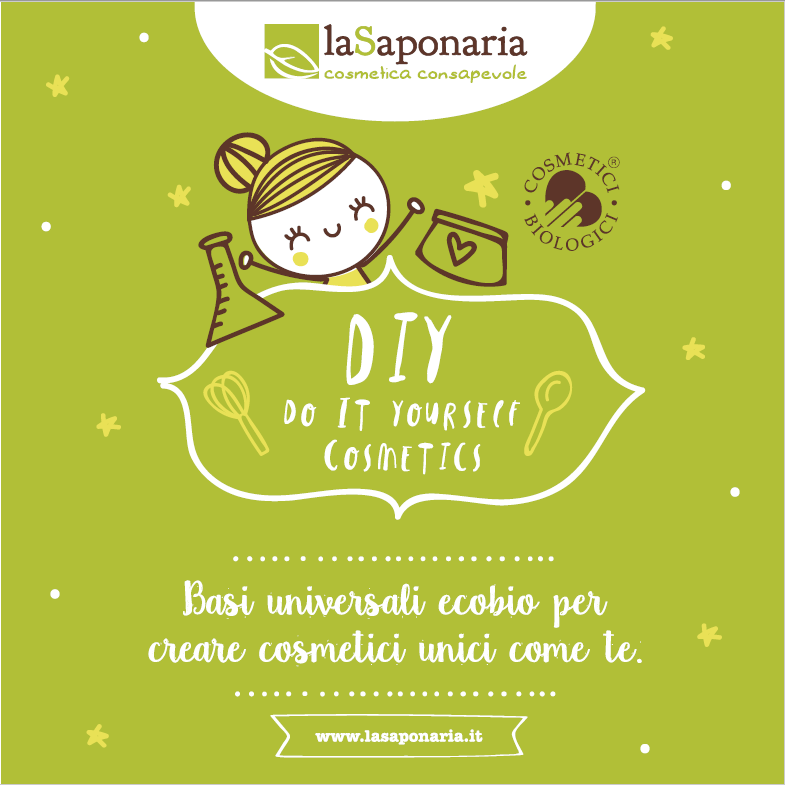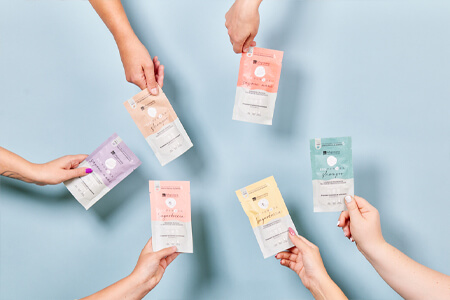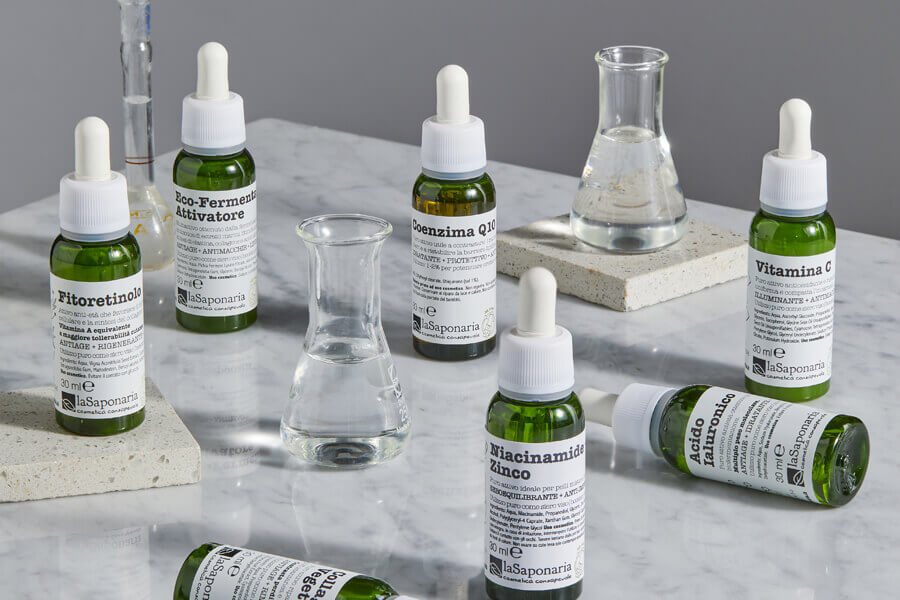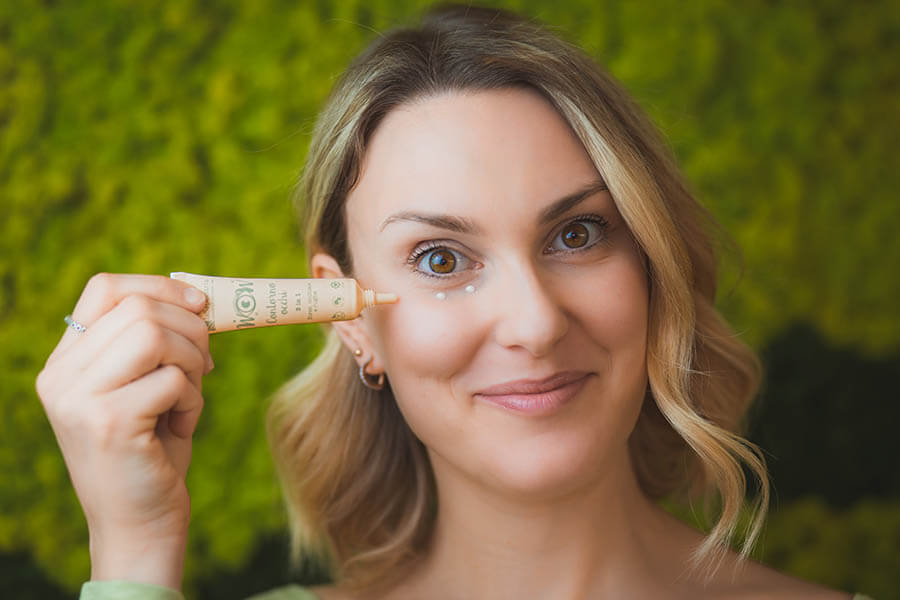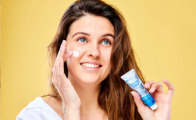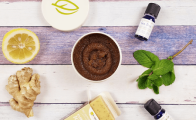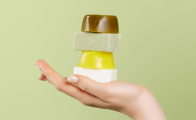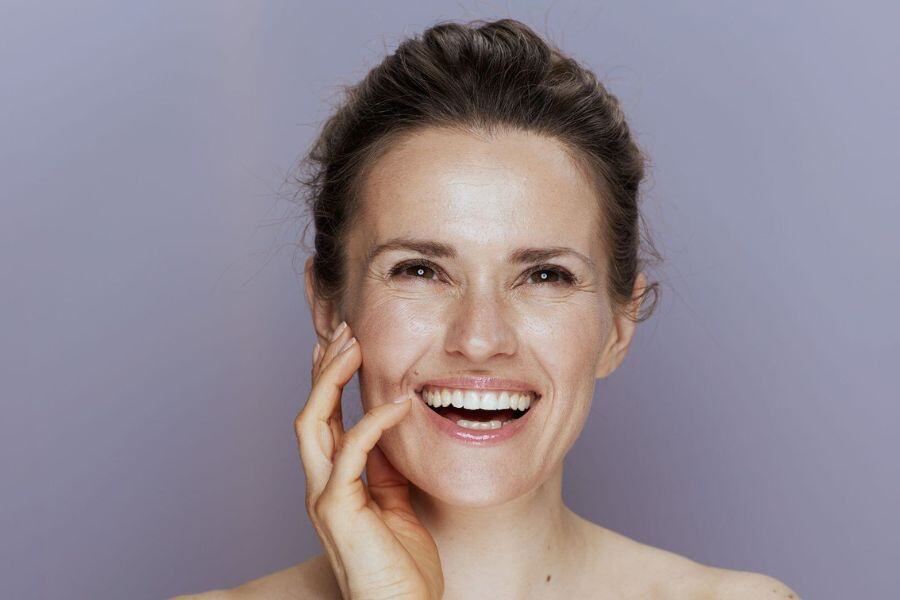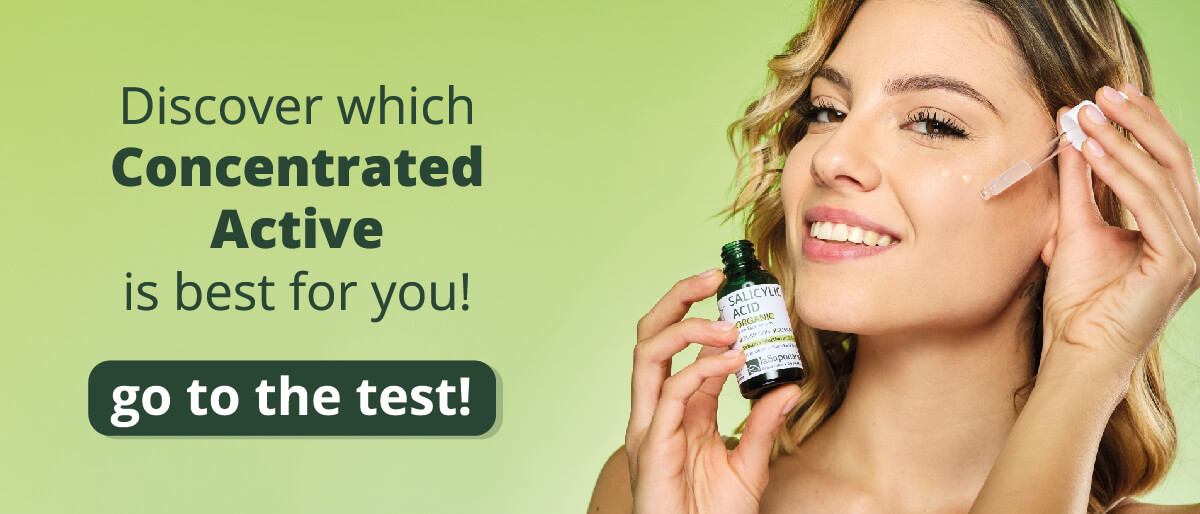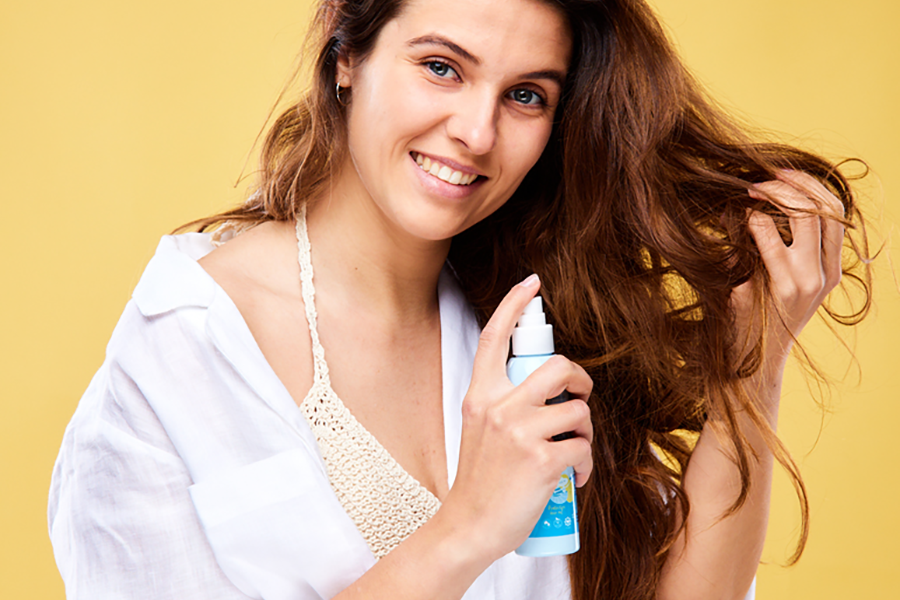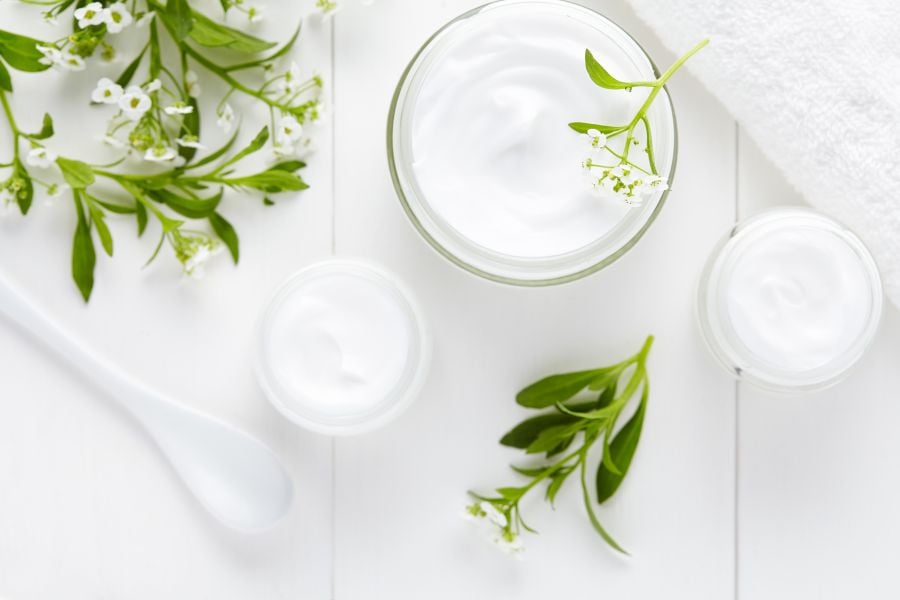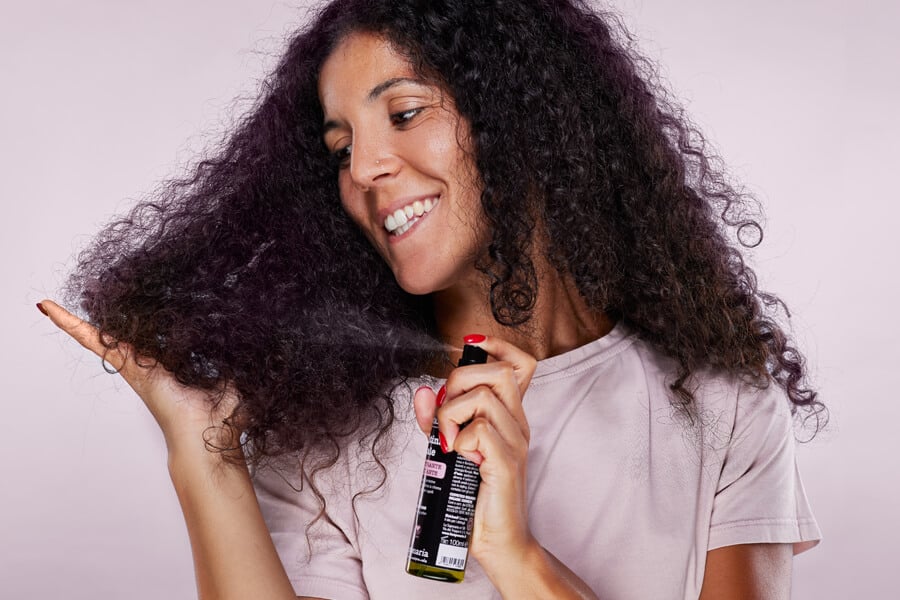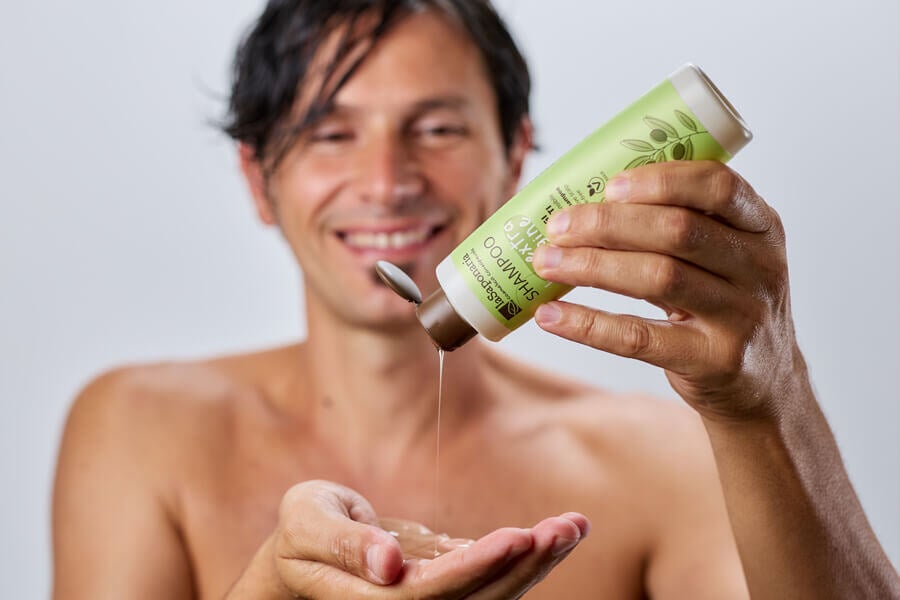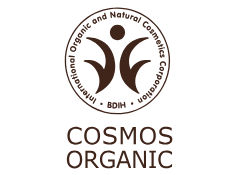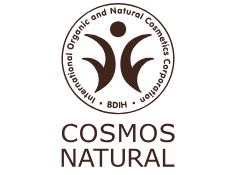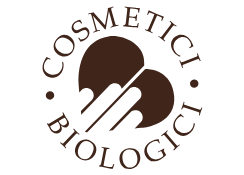The insights of La Saponaria
Retinol: what it is for, when to use it and natural alternatives
Have you heard of retinol and want to learn more? In this article you will find everything you need to know about retinol and its plant-based alternatives. We will provide you with a complete guide to glowing and healthy skin.
In recent years. the world of skincare has rediscovered retinol, considered one of the most effective active ingredients for fighting skin aging. Pure retinol is a concentrated, active form of Vitamin A, one oft the most studied substances in dermatology for its effectiveness in the treatment of skin aging, acne and discolorations. Here are the topics we will address in this article:
- What is Retinol?
- Plant-based alternatives to retinol and why you should choose them.
- Phytoretinol: the alternative of the classic retinol for mature and combination skin
- Bakuchiol: the alternative of the classic retinol for mature and dry skin
- Conclusions
What is Retinol?
Retinol is an active form of Vitamin A. a fat-soluble derivative that supports cell regeneration, collagen production, and overall skin health. Retinol has an exfoliating effect, helping to remove dead skin cells and promote the synthesis of collagen and elastin. It belongs to the retinoid family and is a non-acidic derivative of retinoic acid. In cosmetics, it is used for its ability to accelerate cell turnover, smooth the skin, reduce wrinkles and imperfections, and improve skin tone.
What is it for?
Retinol is well-known forits numerous benefits that makes it a widely used active ingredient in cosmetics. Here are its main benefits:
- Reduction of wrinkles and fine lines
- Improved skin texture
- Evens out skin tone
- Acne prevention and treatment
- Stimulation of collagen production
The “cons” of retinol
Despite the benefits that retinol offers, as we have seen, it has numerous side effects, such as:
- Redness: Retinol stimulates cell turnover, and this can cause temporary inflammation, visible as redness.
- Skin dryness: Retinol, acting deeply ,can cause hydration loss. The result is skin that appears drier, rougher or more dehydrated.
- Flaking: the skin begins to peel, especially in the thinner areas.
- Irritations: such as burning or itching.
- Photosensitivity: Retinol makes the skin more vulnerable to UV rays, increasing the risk of sunburn and blemishes.
These side effects make the use of retinol problematic for many people, especially for those with sensitive skin. Indeed, individuals with this skin type should consult their dermatologist before starting to use it. Furthermore, when massaged on the face, one must be careful not to apply it in the eye contour where the skin is thinner and more sensitive.
When to use Retinol?
Retinol, precisely because it is a potentially aggressive ingredient, should be introduced gradually into the skincare routine, preferably in the evening, because being a photosensitizing product it causes blamishes on the skin and can also be the cause of other reactions such as ittitations and rashes. There is no specific age to start use retinol; it depends on its use. If retinol is used for anti-aging purposes, it is recommended starting at 25-30 years, when the skin starts producing less collagen and the first sign of agings appear. When used to treat acne or dark spots, Retinol can be introduced as early as adolescence. However, caution is needed for young skin without particular concerns, as using retinol in such cases could be an unnecessary excess for the skin.

How to use Retinol
Retinol is and ingredient to be careful with: if not used correctly it can cause damage to the skin. Here are some strict rules that must be followed when using it:
- Start with low concentrations: At first it's important to introduce retinol through products with low concentrations of it, allowing the skin to gradually adapt.
- Apply it on clean, dry skin: Retinol should be applied to dry skin, after thoroughly cleansing the face. During application, care should be taken to avoid the mouth and eye areas, where the skin is thinner and more sensitive.
- Avoid combining it with potentially irritating active ingredients: Retinol must not be combined with other active ingredients such as BHA and AHA, mandelic acid, salycilic acid, lactic acid, citric acid and glycolic acid. Furthermore, it is necessary to avoid the use of Retinol with Vitamin C. These combinations could cause irritation and flaking.
- Always use a sunscreen with hish protection: Retinol is an ingredient that makes the skin partocularly sentitive to the sun, which can cause sunburn, increased wrinkles and worsening of existing skin discolorations. To avoid these skin damage you need to apply sunscreen, SPF 30 or 50, every day, even if it is cloudy.
- Don't use it every day: It's recommendend to start the retinization process with an application 1 or 2 times a week. If your skin responds well, you can gradually increase the frequency. If the skin's adaptation to retinol is skipped, or if an excessive amount of retinol is applied, breakouts and skin irritation may occur.
Who should avoid using Retinol
Retinol is not for everyone. It's not recommended for:
- Pregnant and breastfeeding women: Retinol is a form of Vitamin A and an excess of this can cause malformations in the fetus
- People with extremely sensitive skin, suffering from rosacea or eczema: Retinol can cause or increase damage for those with sensitive skin type.
- People taking photosensitizing drugs
- People who are frequently exposed to the sun: Retinol increases skin photosensibility, thus it is easier to get sunburned or develop dark spots. If you work or spend a lot of time in the sun, without consistently using sunscreen, you could end up causing more harm than good.
- People who use tanning beds or undergo intensive dermatological treatments: after using sun lamps and treatments such as laser or peeling, the skin is extremely sensitive and vulnerable.
Natural and plant-based alternatives offer the same benefits, that is, they are able to have an anti-aging, regenerating and lifting action, with fewer risks and greater tolerability than classic retinol. Plant-based alternatives, indeed, don't have the typical side effects of pure retinol: they are not photosensitizing, they are also suitable for sensitive skin, and can be used during the day and during pregnancy. Let's see some together:
Phytoretinol: the alternative of the classic retinol for mature and combination skin

Phytoretinol is the plant-based alternative to retinol, a Vitamin A equivalent with maximum skin tolerance and the same benefits as retinol. Phytoretinol occurs naturally and is extracted from the seed of Vigna Aconitifolia, a perennial plant of the Leguminosae family, native to India and Pakistan but now found on all continents. The seeds of this plant are rich in precious substances, such as carbohydrates, proteins, water and polyphenols, all substances tha stimulate cell renewal and collagen synthesis, in just 28 days from its application. The effectiveness of this product has been clinically tested on a sample of 20 subjects who showed significant improvements after using Phytoretinol, specifically:
- An 11% reduction in the depth of crow’s feet wrinkles after 28 days of product use
- A 13% increase in the radiance parameter after 28 days of product use.
The results from these tests show that this plant delivers the same regenerative effects as retinol, but being plant-based, it does not cause skin irritation.
Benefits of Phytoretinol
- It doesn't irritate the skin: indeed it is also suitable for sensitive skin
- It smooths out wrinkles and promotes a more radiant complexion
- Safe during pregnancy and breastfeeding
- It makes the skin look regenerated and promotes a lifting effect
- It is not photosensitizing, you will not face the same sun risks that your skin faces with the application of classic retinol
How to use Phytoretinol
Phytoretinol is not photosensitizing, so it can be used year-round, both morning and evening, on cleansed skin. It can be applied in its pure form by massaging it in until fully absorbed, before applying the other products in your skincare routine. Additionally, it can be used as a booster: simply add a few drops to your serum or cream to enhance their effectiveness.
Who is Phytoretinol suitable for?
Its lightweight, delicate texture makes it perfect for combination skin in need of regeneration and a lifting, anti-aging effect. It can be used morning and evening, is suitable for all sensitive skin types, is Cosmos Organic certified, and its effectiveness has been clinically tested. It is ideal both for young skin seeking the regenerating effects typical of traditional retinol and for mature skin looking for a lifting effect.
Bakuchiol: the alternative of the classic retinol for mature and dry skin
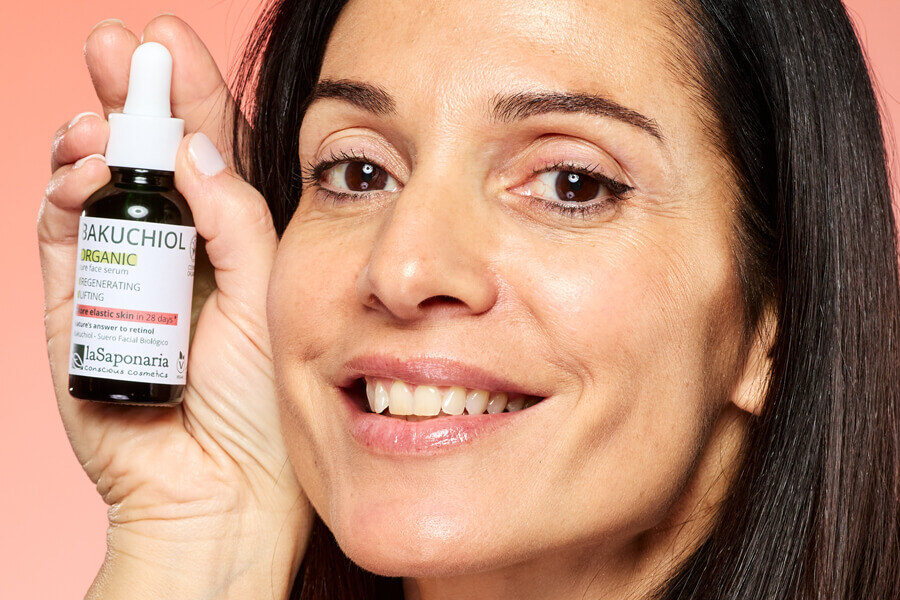
Bakuchiol is a natural ingredient extracted from the seeds and leaves of the Indian plant Psoralea Corylifolia. The name "Bakuchiol" comes from theSanskrit name of the plan, Bakuchi.
Bakuchiol is an essential ingredient in both Traditional Chinese Medicine and Ayurveda. Due to its numerous properties, experts often compare it to retinol, yet it does not have retinol’s many drawbacks. In addition to providing the same benefits, consistent use of Bakuchiol in your skincare routine can deliver visible results, such as wrinkle reduction and increased skin elasticity, in just 28 days. The effectiveness of this product has been clinically tested on a sample of 20 subjects, who showed significant improvements after using Bakuchiol, including:
- A 10% reduction in the depth of crow’s feet wrinkles after 28 days of product use.
- An increase in skin elasticity and firmness of +5% after 28 days of product use.
Furthermore, Bakuchiol is highly dermocompatible, making it suitable even for the most sensitive skin and skin easily subject to irritation.
Benefits of Bakuchiol
- It stimulates collagen production and increase skin elasticity
- It reduces wrinkles and dark spots: evens out skin tone and prevents the appearance of fine lines.
- It has antioxidant and antibacterial properties: these properties make it the right ally even for those with combination and acne-prone skin
- It doesn't cause flaking or redness
- It is not photosensitizing, by using it you will not face the same sun risks that your skin faces when applying classic retinol.
How to use Bakuchiol
Bakuchiol is a perfect ingredient for your skincare routine, as it can be applied both morning and evening on a cleansed face. It can be used in its pure form, simply applying a few drops to the skin and massage until fully absorbed. Additionally, it can also be used as a booster, by adding a few drops to your usual cream or serum to enhance their effectiveness.
Who is Bakuchiol suitable for?
Its oil-based texture makes it perfect for dry skin in need of deep nourishment and a regenerating, lifting effect. It can be used morning and evening, is suitable for all sensitive skin types, is Cosmos Organic certified, and its effectiveness has been clinically tested. Ideal for mature skin, which often suffers from dryness, its regenerating properties help restore a healthy, radiant glow
Conclusions
While pure retinol remains a powerful anti-aging ingredient, nowadays more and more people are turning to natural, plant-based alternatives like Phytoretinol and Bakuchiol for a gentler, more sustainable skincare suitable for all skin types. If you’re tired of the side effects of pure retinol but still want the same benefits, Phytoretinol and Bakuchiol are the perfect allies for a safe and easy skincare routine. In a world where beauty increasingly goes hand in hand with respect for both skin and the environment, choosing natural alternatives to traditional retinol is a true act of mindfulness.

Written by Simona
She is La Saponaria’s digital writer: always juggling a newsletter to send and a blog article to publish, she lovingly takes care of our social media channels and our e-commerce.



